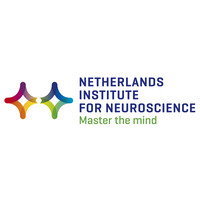
20 Sep PhD position Neurogenesis & Neurodegeneration
PhD position Neurogenesis & Neurodegeneration
Project: Unlock the early-life pathological imprinting of Alzheimer’s disease via lifestyle
Research group: Salta
Hours: 38 hours
Location: Amsterdam
Duration: 4 years
Max salary: € 3.247,-
Starting date: 1st of July 2023 (flexible)
Apply until: 30 September 2023
Team
A PhD position is available in the Neurogenesis & Neurodegeneration group at the Netherlands Institute for Neuroscience in Amsterdam. The Neurogenesis & Neurodegeneration laboratory led by Dr. Evgenia Salta employs transcriptomics and other molecular and imaging approaches to map the cellular and molecular complexity of the adult hippocampal neurogenic niche and to dissect the biological pathways that are deregulated in Alzheimer’s disease. The team employs animal models, iPSC reprogramming and human postmortem brain tissue.
Project
The project is funded by the EU Joint Programme – Neurodegenerative Disease Research and Alzheimer Nederland. We will combine the effort of five international (Netherlands, Germany, Switzerland, Turkey), multidisciplinary groups across neurology, immunology, microbiology and cognitive memory and will use cutting-edge omics technologies and translational approaches. The aim of the project is to define the cellular and molecular effects of early-life dietary and microbial components, physical exercise and cognitive training on the CNS pathological imprinting and AD development later in life. The recruited PhD student will focus on effects related to neurogenesis and neuroinflammation using mouse models, human iPSC cultures and postmortem human brain. These results will pave the way for the generation of improved approaches to prevent and/or treat AD in later adulthood. The research will be performed at the Salta lab in Amsterdam with possible visits/trainings in the groups of the other consortium partners.
What we expect from you
- Experience with mouse experimentation (Article 9 license or equivalent).
- Experience with histological analysis, confocal microscopy, RNA processing and analysis.
- Experience with (iPSC) cell culture is a plus.
- Excellent communication skills, as well as proficiency in spoken and written English, are expected.
- Keen interest in collaborative research.
What we offer
- Opportunity to work with novel, exciting datasets.
- Mentoring, supervision and training.
- Access to state-of-the art infrastructure and work conditions.
- A stimulating, innovative and dynamic international research environment.
- Possibility to develop your own projects and apply for third-party funding.
- Flexible working time arrangements.
Salary & Terms of Employment
The gross monthly salary based on full-time employment (1 FTE, 38 hours a week) varies between € 2541,- in the first year and € 3247,- gross per month (salary scale P) in the last year, in accordance with the Collective Labor Agreement for Dutch Universities (CAO NU), excluding 8% holiday allowance and 8.3% end-of-year bonus. We offer travel expenses, paid parental leave, flexible working hours, 30 days paid leave per year and help at finding a house.
The KNAW offers its staff an excellent package of secondary benefits. A package that meets the different needs of employees depending on their stage of life, lifestyle or career ambitions. For example, by working an extra two hours a week, it is possible to increase the number of days off from 29 to 41 days a year (with full-time employment).
For a complete overview of the terms of employment, please refer to the web page: werken bij de KNAW.
Appointment
The position is for a period of 4 years in total. The first appointment is for one year with the option for an extension for the remaining period pending on evaluation.
Environment
The Netherlands Institute for Neuroscience (Home – Netherlands Institute for Neuroscience – Master the Mind (nin.nl)) is the country’s leading fundamental neuroscience research institute in the international and progressive city of Amsterdam. It provides a critical mass of scientists (spanning more than 27 nationalities) and neuroscience facilities, in a highly interactive, dynamic, multi-cultural environment, with English as the working language.
Diversity & Inclusion
The Netherlands Institute for Neuroscience (NIN) aims to understand the neural circuits that create the diverse repertoire of our mental functions. At NIN, we recognize that prejudice, discrimination and racism can occur anywhere in both implicit and explicit ways. We therefore pursue an active diversity policy to help reduce inequality, remove barriers and create equal opportunities for everyone. We strive for an environment with equal opportunities for all, regardless of age, sex, gender identity, sexual orientation, religion, culture, disability, race and ethnicity.
NIN encourages excellence by resolutely pursuing an inclusive environment, where synergies across diverse individuals and groups are harnessed. Acknowledging, respecting and integrating the diversity of our community, is the only way to Master the Mind.
We would therefore like to invite candidates who want to contribute to this through their background and experience. In the event of equal suitability, preference will be given to the candidate who enhances diversity within the institute.
Information
For additional information, please contact Dr. E. Salta (e.salta@nin.knaw.nl).
More information about the laboratory can be found on: Salta – Netherlands Institute for Neuroscience – Master the Mind (nin.nl)
Application and deadline
To apply, please send:
- A detailed CV
- A motivation letter, including a brief description of past research experience and future interests, as well as the earliest possible starting date including the name and contact details of at least two referees
Evaluation of candidates will begin immediately, and continue until the position is filled.
Please click here to apply.


Sorry, the comment form is closed at this time.